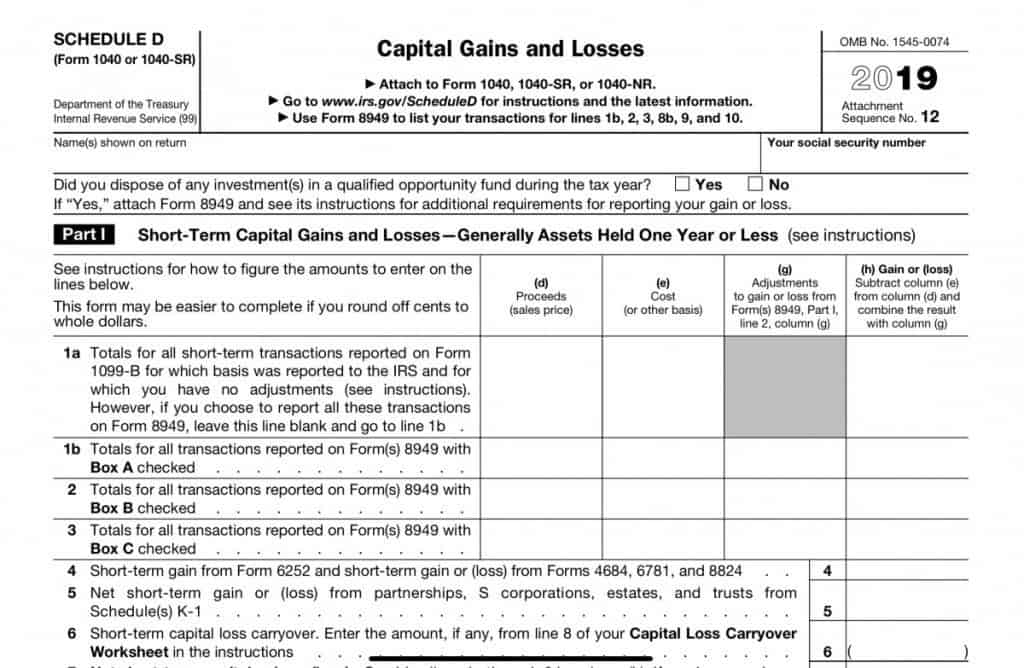Bitcoin is famous for its anonymity. While tracing the owner of an address can be tricky and tedious, it can still be done. How to find out who owns a Bitcoin address?
You will need to use sources outside the blockchain to track the owner of a Bitcoin address. It is possible to do so because Bitcoin is pseudo-anonymous, however the process can be complicated as an address alone will not reveal its owner.
Unless you’re an expert, it can be challenging to navigate the crypto-world. Nevertheless, you can accomplish your goal with the right resources and guidance. I’ve broken down the strategies to unearthing Bitcoin users below.
Can Bitcoin Address Be Traced and Tracked?
According to Bitcoin: “All Bitcoin transactions are public, traceable, and permanently stored in the Bitcoin network.”
So essentially, yes, there exists easily accessible data on any given address. A Bitcoin address is a series of letters and numbers unique to its wallet, and its readily available information includes:
- Wallet balance
- Transaction history including:
- Amount of cryptocurrency sent
- Sender’s address
- Receiver’s address
- Date of transfer
- Charged fees
- Number of confirmations
What is NOT provided is the actual owner of an address. Discovering the owner is a complex task but certainly not impossible with some strategy and determination.
Searching Outside the Blockchain for a Bitcoin Address Owner
As there is no address registry, you must implement creative tactics and “think outside the blockchain” to discover an address owner.
The different tactics to tracking a Bitcoin address owner are:
- Searching for Published Personal Information Online:
This strategy may be the most obvious of all, but still demands time and effort on your behalf to perform the research. Look for personal information giveaways in these situations:
- Collecting donations on a personal blog.
- Posting a Bitcoin address on a site using their real name as the registered domain.
- Posting Bitcoin addresses in forums, where user identities are more easily traceable with some extra digging, if they haven’t used their real identity already.
- Using Transaction Analysis:
Certain companies such as Elliptic and Chainalysis use software to connect Bitcoin addresses to websites or individuals. Unfortunately, their services are reserved for clients and are not accessible to the general public.
- Tracking Outside Purchases:
When using a Bitcoin wallet to purchase physical goods, either the retailer or a payment processor will need personal information such as a name and shipping address, which will most likely be stored in a database and therefore remain trackable.
- Tracking IP Addresses:
The Internet Protocol (IP) address links to the computer that made the purchase. While it’s not possible to directly associate a Bitcoin address to its IP address, with some investigation it can be done. For example, if multiple transactions came from a single IP address, it could be concluded that the Bitcoin addresses associated from that computer belong to one individual.
- Searching for Thin Client or Hosted Wallet Usage:
Thin Clients use servers that reveal Bitcoin addresses and IP addresses to their operators. There are ways they can protect user data, but they usually don’t implement them.
Hosted wallets store Bitcoin addresses and IP addresses on their servers and are known to leak information to third parties.
- Tracking Bitcoin Exchanges:
A Bitcoin exchange is a marketplace where currency “makers” sell their goods to “takers”. The platform can also be used to exchange between cryptocurrencies- although Bitcoin is still the most commonly used cryptocurrency of all. To use these services individuals must reveal their personal information. The database may be hard to access, however, unless you are a government agent or an exchange account insider.
- Tracking National Currency Exchanges:
This is similar to the previous tactic, but this time the exchange is for actual monetary currency. The government will need to verify your personal identity for such transactions and will store your information indefinitely. Again, it is difficult for the general public to obtain this kind of private information.
Reasons to Trace a Bitcoin Address
Financial institutions and government agencies like law enforcement and intelligence comprise a large bulk of those interested in pursuing Bitcoin address owners. Because of its anonymous nature, Bitcoin attracts criminals attempting to hide their trail.
The tactics described above help these agencies to:
- Prevent money laundering
- Prevent illegal drugs and firearms trades
- Issue subpoenas to identified criminals
- Insure taxes are paid on gains
- Avoiding scams
In fact, Bitcoin is super effective in catching criminals because it shows a whole pattern of criminal history as opposed to one instance. This article goes more in-depth on Bitcoin crime-fighting stories.

Regular civilians may instead want to track an address because of misplaced money. It can be easy to slip-up a number or letter in a drawn-out Bitcoin address. In the instance that the money was sent to a nonexistent address, it’s essentially lost in a blockchain void and there is unfortunately no way to get it back.
Is Bitcoin Really Untraceable?
As we have learned, it is entirely possible to trace an address. That being said, certain tactics can be implemented to increase the difficulty of tracking an owner.
How to Prevent Your Address From Being Traceable
If you are concerned for your privacy for whatever reason, there are ways to protect yourself. The following steps are how to increase your privacy:
- Use a New Bitcoin Address for Each Payment.
As we now know, address history is easily available. Changing addresses frequently will break up that paper trail and make it harder to connect transactions and associate them back to you. Read more in Can You Use the Same Bitcoin Address Twice?
- Be Leary of Publicly Sharing Information.
Not only should you not publish your address but avoid posting anything about your transactions and purchases for increased protection.
- Purchase a VPN Service for Increased Anonymity.
A Virtual Private Network (VPN) guarantees privacy on your server. Public Wi-Fi is a breeding ground for internet spies. Even in the safety of your home, your Internet Service Provider (ISP) can view your activity and sell it to third-party advertisers who can legally get in on the action, too. Conceal your IP address with a VPN like Tor so you can keep your personal business, well, personal.
- Purchase Bitcoins Anonymously.
Buying Bitcoins with cash makes it easier to remain untraceable. You can do so by:
- Using a Bitcoin ATM.
- Signing up for Paxful, a service with an array of options for using cash to purchase Bitcoin. In this case, skipping the platform’s verification process is also key.
- Avoiding Thin Clients and Hosted Wallets.
For the same reasons aforementioned, protect your data by dodging these leaky platforms.
- Use Privacy Coins Such as Monero or Zcash.
While Bitcoin is only pseudo-anonymous, other cryptocurrencies go all out. Monero and Zcash are two major privacy coins in the blockchain world. Unlike Bitcoin they don’t document sending or receiving addresses, which means the entire transaction is concealed.
Why Take Measures to Stay Untraceable?
It’s not just criminals who should worry about their identities being tracked.
There are many legitimate reasons why individuals would want to keep their privacy intact. Like traditional bank accounts, Bitcoin addresses hold monetary value and are vulnerable to hackers. Protecting your data helps keep you safe from internet predators. Other reasons to remain anonymous could be to keep your net worth hidden.Regardless of individual motives, increasing personal privacy is effective but not foolproof. Ultimately, any online transaction runs the risk of being traced.
